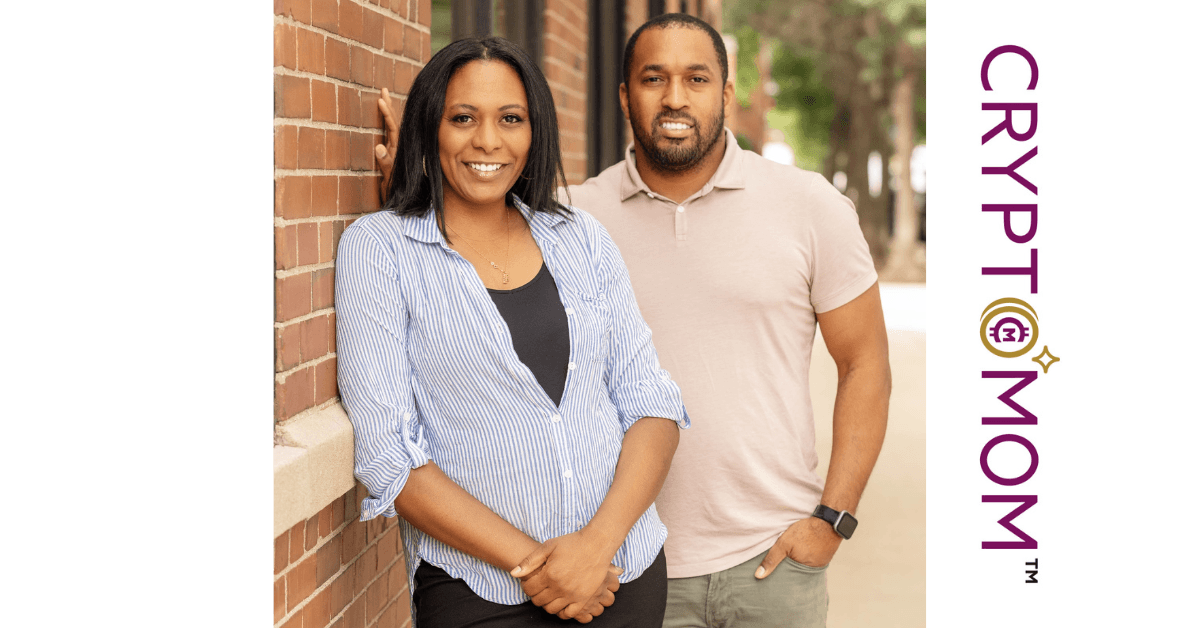KEY INSIGHTS:
- The CryptoMom App, an investment management platform for women, aims to close the gender divide in cryptocurrency.
- Women only comprise 32 percent of crypto holders, but reports and surveys have found interest is increasing.
- Other women-founded fintech companies have emerged in the last few years including CapWay and EnrichHER.
Although cryptocurrency was built around the idea of financial equity, a gender gap is omnipresent.
The gender disparity in crypto matches or exceeds that of traditional investments including ownership of exchange-traded funds, individual stocks, mutual funds, real estate and bonds.
About 67 percent of crypto holders in the U.S. are men, according to the Gemini 2022 Global State of Crypto report, but many women are, as the report defines, “crypto curious.” They account for slightly more than half (51 percent) of individuals interested in cryptocurrencies — and women founders have taken notice.
Kendra Cole, the co-founder of The CryptoMom App, an investment management platform that aims to make crypto investing more accessible to women and moms, is working to transform this curiosity into action.
When she tried to purchase her first cryptocurrency in 2020, Cole struggled to even get on the exchange because of the name verification process. She has used her maiden name, her husband’s surname as well as a hyphenation of both for different accounts. Her best friend had the same challenge.
“Sometimes that can be a challenge specifically for women who change their names at different points in their life and it could be because they got married or because they’re no longer in that partnership,” Cole told The Plug.
When users sign up for financial applications, they often undergo a verification process. With Cole’s own personal experience in mind, CryptoMom, which is onboarding alpha users and intends to launch in beta before the end of the year, is working to come up with a unique solution with its “know your customer” vendor, which will be integrated with the platform.
The current services on the market are also missing out on billions in potential investment power because they were not built with women in mind, Cole explained.
“While my story is unique to me, it’s not uncommon for women. The current exchanges don’t really speak directly to women,” Cole said.
“A lot of apps are built around gamification, which kind of caters more towards that young, white male demographic. Our app is not like that. We wanted to make sure that it was clear, easy to use and simple,” Cole said, adding her chief UX designer and creative director are also women.
The platform includes three services: users can buy Bitcoin, allocate it to tax and non-tax-advantaged accounts like 529 education plans, and can gift crypto for special occasions such as baby showers or graduations.
Women tend to have a different investing style than men, Cole explained, and she wants CryptoMom’s investment tools to represent that. American women control more than $10 trillion in assets — a third of all U.S. household assets, according to McKinsey.
“We wanted to make sure that we’re providing real-life applicable relevancy to these products,” she said.
To understand where this gender chasm has developed, Cole said the historical relationship between women and money must be taken into account. Women did not get the right to open a bank account in the United States until the 1960s, and it was not until 1974 when the Equal Credit Opportunity Act was passed that women could not be discriminated against on the basis of sex by lenders.
Black women in particular face the highest investing barriers — Black adults are more likely to be underbanked and Black women have the highest student debt loans than any other group.
Another factor contributing to the gender gap is that the knowledge gap has led to a lack of confidence among women in crypto investing, Cole said. Ninety-four percent of women have heard of crypto, but only nine percent said they feel competent, according to a survey by BlockFi.
Cole wants CryptoMom to help educate women on crypto and be a “pipeline” to the next step.
“When women gain that education and confidence booster to go and buy, there’s no platform out there where she can put her dollars on that is taking a long-term committed approach to her success within crypto,” Cole said.
Other women-founded fintech companies have emerged in recent years, but none focusing specifically on cryptocurrency.
One of the largest investment platforms for women is Ellevest, which has raised a total of $153.4 million in funding but is not Black-founded. Ellevest provides services including digital investing tools, banking services and money coaching. The platform creates an investment portfolio for its users with a mix of stock, bond and alternative funds.
Roshawnna Novellus founded EnrichHER, a lending platform supporting retail and institutional funders to allocate capital to BIPOC and women-owned businesses, in 2017. EnrichHER has raised $1.6 million in funding, with one of the largest investments coming from Fearless Fund, a venture capital firm built for women of color by women of color.
Although not specifically for women, Sheena Allen designed the digital banking app CapWay in 2016 to bring trustworthy banking experiences to underbanked and unbanked populations and promote financial literacy to underserved communities that have been unsupported by traditional banks. CapWay has raised at least $650,000.
CryptoMom on the other hand has mainly been bootstrapped. In addition to a friend and family raise, they participated in the AWS Impact Accelerator for Black Founders which provides $125,000 in non-diluted grant funding.
“I think a lot of times people just think, ‘Well, why do women need a platform?’ I would challenge them and say, ‘Why not? Why don’t women deserve to have companies, products or services that speak directly to their priorities?’” Cole said.








